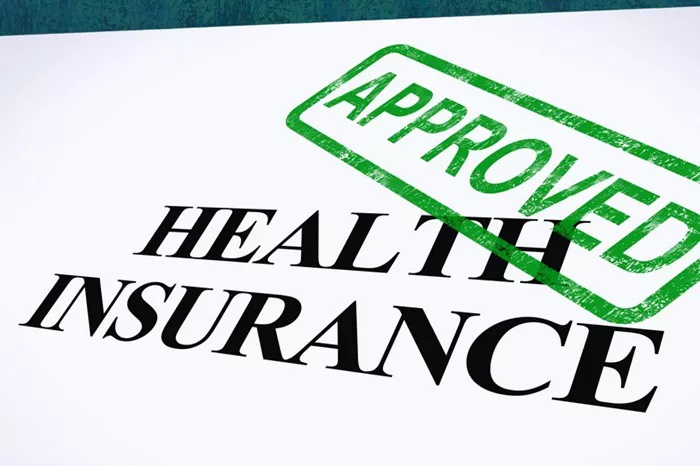Medical liability insurance, often referred to as medical malpractice insurance, is an essential safeguard for healthcare professionals. This insurance protects against claims of negligence, errors, and omissions that may arise during the course of providing medical care. Understanding what medical liability insurance covers is vital for healthcare providers to ensure they are well-protected against potential legal and financial challenges. In this comprehensive article, we will delve into the various aspects of medical liability insurance, exploring its coverage, importance, and factors influencing its cost.
Introduction to Medical Liability Insurance
Medical liability insurance plays a crucial role in the healthcare sector by providing financial protection and legal defense to healthcare providers facing claims of negligence or malpractice. This type of insurance is designed to cover the costs associated with legal actions, including settlements, judgments, and legal fees. Given the inherent risks associated with medical practice, having robust medical liability insurance is indispensable for healthcare professionals.
Understanding Medical Liability Insurance
Medical liability insurance is a specialized form of professional liability insurance tailored specifically for the medical field. It provides coverage for various aspects of medical practice, ensuring that healthcare providers are protected from potential legal and financial repercussions. Here’s a detailed look at what medical liability insurance covers:
Coverage for Claims of Negligence
Negligence is a primary concern in medical liability insurance. It refers to situations where a healthcare provider fails to meet the standard of care, resulting in harm or injury to a patient. The insurance covers several key areas related to negligence:
Legal Costs:
Medical liability insurance covers the costs of legal defense, including attorney fees and court expenses.
This coverage is crucial for managing the financial burden of defending against allegations.
Settlement Costs:
If a claim results in a settlement, the insurance policy covers the amount agreed upon in the settlement.
Settlements can be significant, and insurance helps mitigate these potentially high costs.
Judgment Costs:
In cases where a lawsuit results in a judgment against the provider, the insurance covers the amount awarded to the plaintiff.
This coverage extends up to the policy limit, providing financial protection against large awards.
Coverage for Errors and Omissions
Errors and omissions in medical practice can lead to significant legal claims. Medical liability insurance addresses these issues by covering:
Misdiagnosis:
If a healthcare provider makes an incorrect diagnosis leading to patient harm, the insurance covers the associated claims.
Misdiagnosis can have serious consequences, and coverage ensures financial protection.
Delayed Diagnosis:
Insurance covers claims resulting from delays in diagnosing conditions, which can cause harm to patients.
Timely diagnosis is critical, and insurance provides support in cases of delay.
Treatment Errors:
Errors in administering treatments or prescribing medication that result in patient injury are covered.
Treatment errors are a significant concern, and insurance helps manage the financial impact.
Coverage for Professional Services
Medical liability insurance extends to various professional services provided by healthcare professionals:
Clinical Services:
Coverage includes a wide range of clinical services such as examinations, procedures, and treatments.
This ensures that all aspects of direct patient care are protected.
Consultation Services:
Claims arising from consultations where incorrect advice or information is provided are covered.
Accurate advice is essential, and insurance helps address any resulting claims.
Administrative Services:
Errors or omissions in administrative aspects of medical practice, such as patient records or billing, are covered.
Administrative errors can also lead to claims, and insurance provides protection.
Coverage for Personal Injury Claims
Medical liability insurance also covers personal injury claims related to medical practice:
Physical Injury:
Claims resulting from physical harm caused by medical procedures or treatments are covered.
Physical injuries can have severe consequences, and insurance provides financial protection.
Emotional Distress:
In some cases, patients may claim emotional distress caused by medical errors or negligence.
Insurance may cover these claims, addressing the emotional impact on patients.
Wrongful Death:
If a medical error leads to a patient’s death, the insurance covers wrongful death claims.
This type of claim can be significant, and insurance provides necessary coverage.
Importance of Medical Liability Insurance
The significance of medical liability insurance extends beyond mere financial protection. Here’s why it is crucial for healthcare professionals:
Financial Protection
Medical liability insurance provides essential financial protection against the high costs of legal claims and lawsuits:
Cost Coverage:
It covers legal fees, settlements, and judgments, reducing the financial burden on healthcare providers.
Without insurance, these costs could be substantial and unmanageable.
Risk Management:
Insurance helps manage the financial risks associated with medical practice, ensuring stability and continuity.
Proper coverage minimizes the impact of potential claims on a provider’s finances.
Legal Defense
Having medical liability insurance ensures access to skilled legal defense in the event of a malpractice claim:
Expert Representation:
Insurance provides access to legal experts who specialize in medical malpractice cases.
This expertise is crucial for navigating complex legal proceedings and defending against claims.
Support and Guidance:
Providers receive support and guidance throughout the legal process, enhancing their defense strategy.
Effective legal defense is essential for protecting a provider’s reputation and practice.
Peace of Mind
Medical liability insurance offers peace of mind, allowing healthcare professionals to focus on patient care:
Reduced Worry:
Providers can concentrate on delivering quality care without constantly worrying about potential legal issues.
Insurance provides a safety net, enabling providers to perform their duties confidently.
Professional Confidence:
Knowing that they are protected by insurance boosts providers’ confidence in their professional practice.
Confidence in their protection allows providers to focus on their primary responsibility—patient care.
Maintaining Professional Reputation
A strong professional reputation is critical for healthcare providers, and medical liability insurance helps maintain it:
Reputation Management:
Insurance ensures that providers can defend themselves effectively against unfounded claims.
This helps preserve their professional reputation and credibility.
Commitment to Care:
Having insurance demonstrates a provider’s commitment to maintaining high standards of care and professionalism.
It reflects positively on their practice and dedication to patient safety.
Types of Medical Liability Insurance
Several types of medical liability insurance policies are available, each offering different coverage options:
Occurrence-Based Policies
Occurrence-based policies provide coverage for claims made during the policy period, regardless of when the incident occurred:
Broad Coverage:
Coverage extends to incidents that occurred during the policy period, even if claims are made after the policy ends.
This type of policy offers long-term protection.
See Also: Top 5 Best Nursing Liability Insurance
Claims-Made Policies
Claims-made policies cover claims made during the policy period but only for incidents that occurred during the policy period or prior periods of continuous coverage:
Tail Coverage:
Claims-made policies often require tail coverage for incidents that occurred during the policy but are claimed after it ends.
Tail coverage extends protection beyond the policy period.
Individual vs. Group Policies
Healthcare providers can choose between individual policies and group policies offered through their practice or medical group:
Individual Policies:
Provide personalized coverage tailored to the specific needs of an individual provider.
Offers flexibility in coverage options and limits.
Group Policies:
Cover multiple members of a medical practice or group, providing a shared coverage plan.
Often cost-effective and convenient for group practices.
Factors Affecting Medical Liability Insurance Premiums
Several factors influence the cost of medical liability insurance premiums:
Specialty and Risk Level
The medical specialty and associated risk level impact insurance premiums:
High-Risk Specialties:
Specialties such as surgery or obstetrics often have higher premiums due to increased risk.
Providers in these fields face higher potential for claims.
Low-Risk Specialties:
Lower-risk specialties may benefit from reduced premiums.
Risks associated with these fields are generally lower.
Geographic Location
The geographic location of a medical practice affects insurance premiums:
Malpractice Claims Rates:
Areas with higher rates of malpractice claims or higher legal costs may result in higher premiums.
Geographic factors influence the overall risk environment.
Claims History
A provider’s claims history significantly affects insurance premiums:
Past Claims:
Providers with a history of multiple claims may face higher premiums due to increased perceived risk.
A clean claims history may result in lower premiums.
Coverage Limits
The level of coverage limits selected impacts premiums:
Higher Limits:
Policies with higher coverage limits generally have higher premiums.
Providers must balance coverage needs with the cost of premiums.
Steps to Choose the Right Medical Liability Insurance
Selecting the appropriate medical liability insurance involves several key steps:
Assess Your Coverage Needs
Evaluate the specific risks associated with your specialty and practice:
Specialty Risks:
Consider the risks inherent in your medical specialty and the potential for claims.
Tailor coverage to address these specific risks.
Practice Size and Scope:
Assess the size and scope of your practice to determine appropriate coverage levels.
Larger practices or those with complex procedures may require more comprehensive coverage.
Compare Policies
Compare different insurance policies to find the best fit:
Policy Options:
Review policy options, including coverage limits, policy types, and additional features.
Compare multiple policies to find the most suitable coverage.
Consult with Insurance Experts
Seek advice from insurance experts or brokers who specialize in medical liability insurance:
Expert Guidance:
Insurance brokers with experience in medical liability can provide valuable insights.
They can help navigate policy options and ensure adequate coverage.
Review Policy Terms
Carefully review the terms and conditions of the insurance policy:
Coverage Details:
Examine coverage limits, exclusions, and requirements for claims reporting.
Ensure that the policy provides comprehensive protection.
Conclusion
Medical liability insurance is an essential component of risk management for healthcare professionals. It provides critical coverage for claims of negligence, errors, and omissions, as well as personal injury claims. By understanding what medical liability insurance covers and evaluating their specific needs, healthcare providers can select the right policy to protect themselves and their practice. With appropriate insurance coverage, providers can focus on delivering high-quality care with the confidence that they are shielded from significant legal and financial risks.
[inline_related_posts title=”You Might Be Interested In” title_align=”left” style=”list” number=”6″ align=”none” ids=”4449,3605,3599″ by=”categories” orderby=”rand” order=”DESC” hide_thumb=”no” thumb_right=”no” views=”no” date=”yes” grid_columns=”2″ post_type=”” tax=””]






















